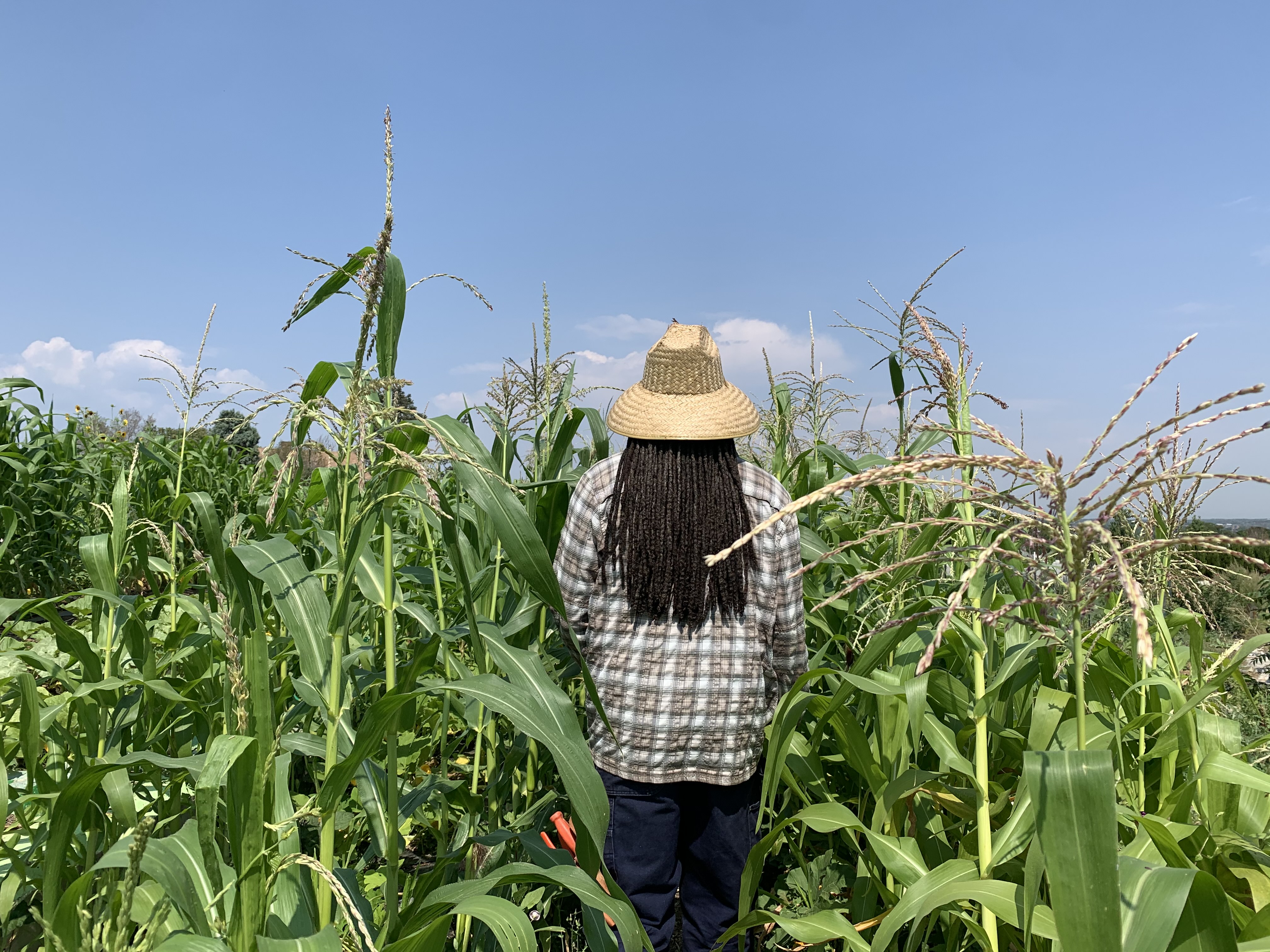Inclusive, representative Denver farms and food advocacy organizations Frontline Farming and Mo’ Betta Green Marketplace serve statewide communities and populations in need. Both are run by Black, Indigenous, People of Color (BIPOC), womxn leaders and strive to create equity within and diversify Colorado farming, farmland and leadership, educate about food justice and deliver nutritious, fresh food.
In 2019, people of color made up 7.6% of total employed farmers, ranchers and agricultural managers in Colorado, according to the U.S. Bureau of Labor Statistics — 0.9% of total employed farmworkers are Black. Black farmers have been discriminated against by agricultural policy since 1914 and face social and economic inequality — they lost 80% of land from 1920 to 2007, according to a 2019 report by the Center for American Progress.
These Denver organizations counter those challenges. “Our goal is to build people on our shoulders,” Fatuma Emmad said. She is the executive director, co-founder and head farmer at Frontline Farming — her co-founder is Dr. Damien Thompson. “As BIPOC farmers, we stand on the shoulders of those before us and hope that we can lessen the barriers of entry for our brothers and sisters.”
Frontline Farming
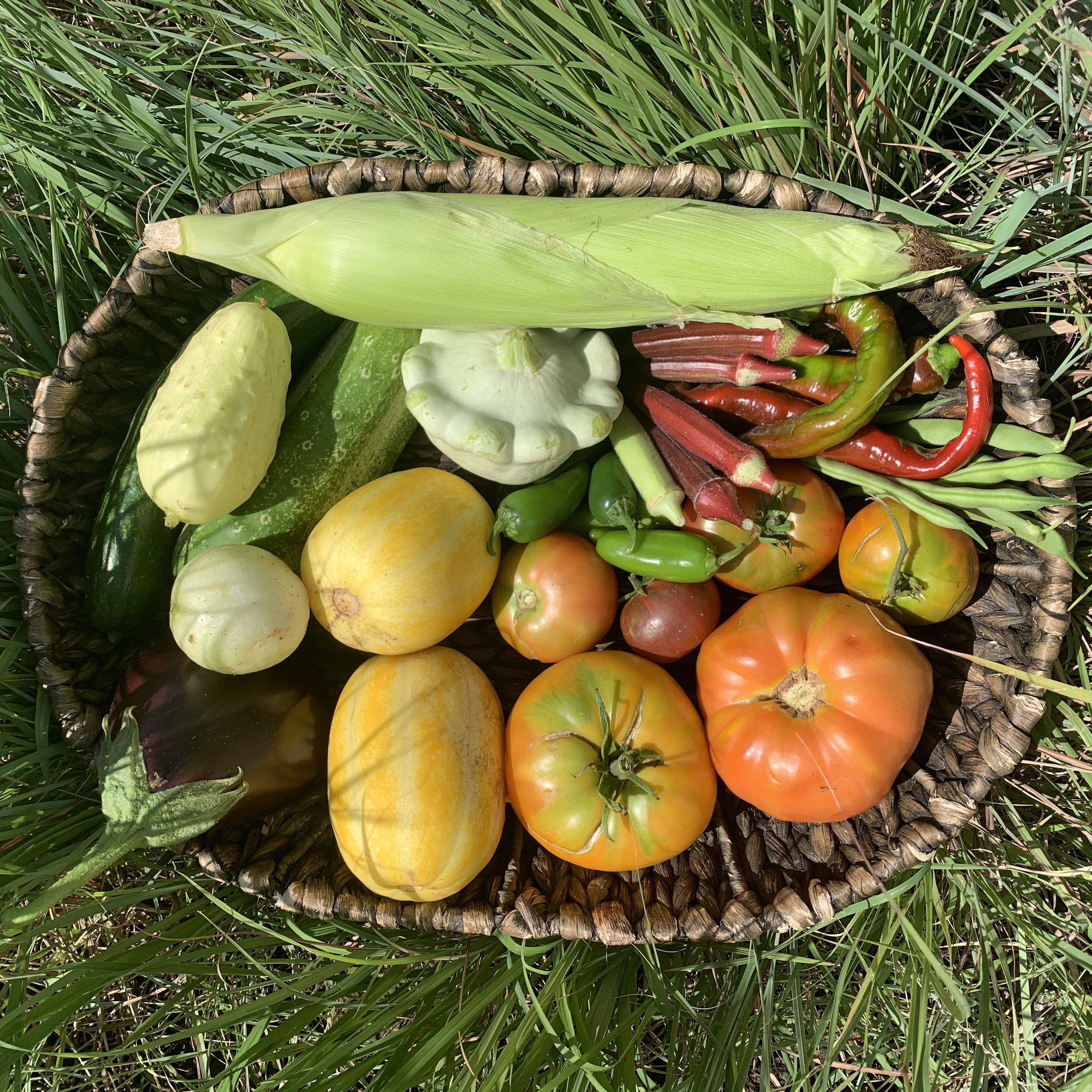
Established in 2018, the farmer advocacy and food justice organization serves different populations with programs including social service partnerships with Denver Health, Project Angel Heart, SafeHouse Denver, Family Tree, Denver Rescue Mission and others. “My gratitude is in in seeing how every one of our farmers thinks for the land and also seeing how the community does,” Emmad said.
Visiting school programs educate elementary school students, university students at Regis University and graduate students at University of Colorado. Paid classes are taught by diverse BIPOC instructors with lessons including beekeeping, raising chickens and herbalism, the uses of medicinal plants.
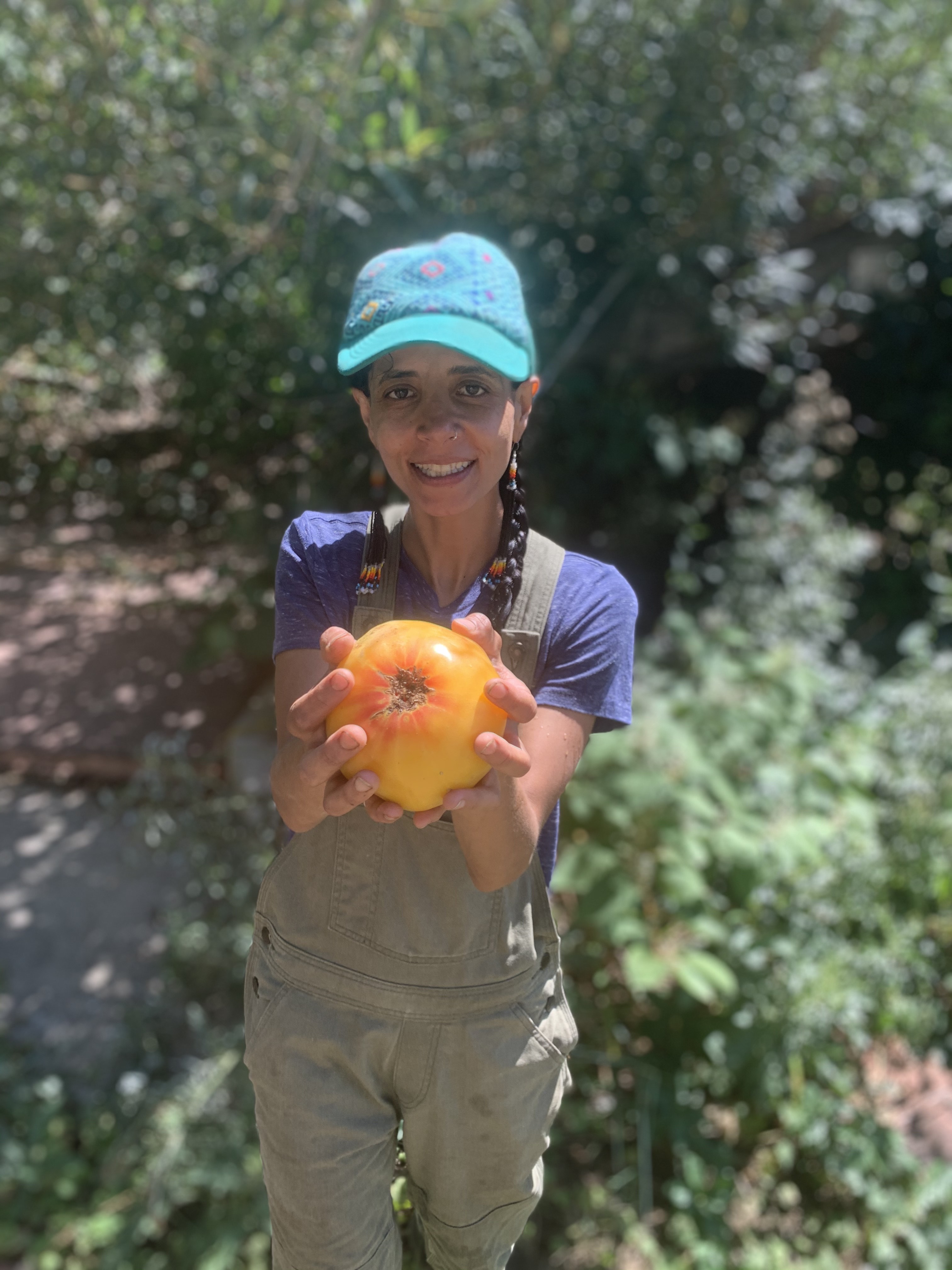
She and her team first began farming and advocating for food justice and access in Colorado in 2013. Emmad said that the organization was formed out of “a need to control the narrative of BIPOC [farmers], control resources, better advocate in the appropriate language and represent [BIPOC people within the organization.]”
Frontline Farming has three farm locations in Adams, Denver and Jefferson counties. Emmad said that the farm sites are a unifying, educational space. “People can volunteer and learn about growing food, the struggles of communities with low access to food and how a food apartheid system works.”
Emmad explained that Frontline Farming fulfills its mission of uplifting the BIPOC community through food security options, education and advocacy. The organization creates farming leadership opportunities for BIPOC and womxn, spanning from crew positions to board membership.
Communities of color and low-income groups face limited access to nutritious, culturally appropriate food. Frontline Farming also developed foodways that produce food from African, bi-regional and Arab regions, use farming and harvesting customs and function to highlight food contributions made by these cultures. Emmad noted the “beautiful corn” grown this year in foodways.
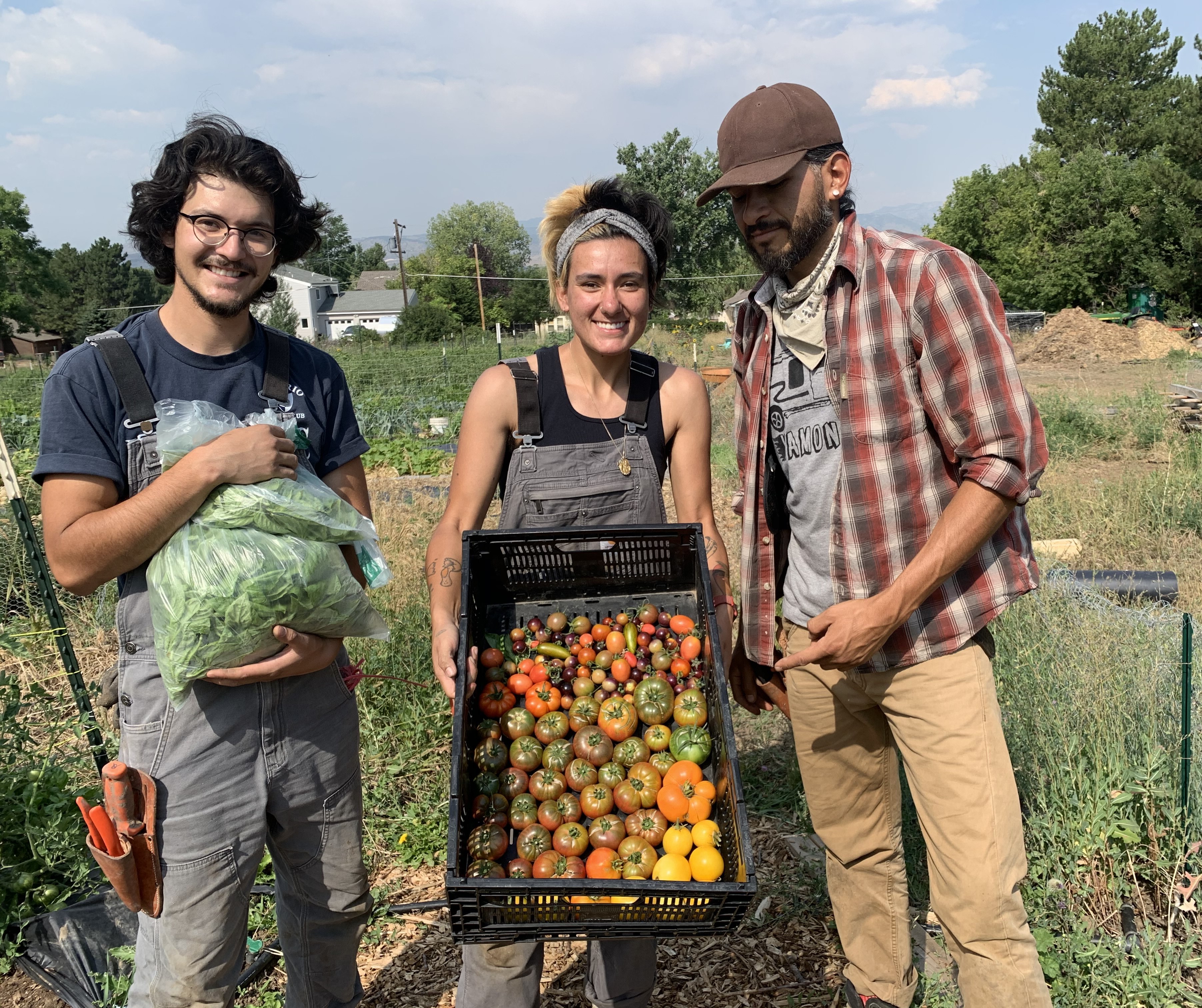
Frontline Farming’s farmers markets — announced on the organization’s Facebook page and website — are pay-what-you-can, and also accept SNAP dollars and double-dollars. No-cost grocery is available on Mondays at Majestic View Farm in Arvada.
One of Frontline Farming’s current advocacy efforts is Project Protect Food Systems Workers. The group supports vulnerable immigrant and non-immigrant agricultural workers statewide, including its own farm workers, during the pandemic by providing personal protective equipment and access to other resources.
Frontline Farming will begin placing promotoras — culturally literate navigators who connect with communities in need. “Our goal is to make sure that our agricultural, frontline and meat-packing workers are not forgotten,” Emman said.
Mo’ Betta Green Marketplace
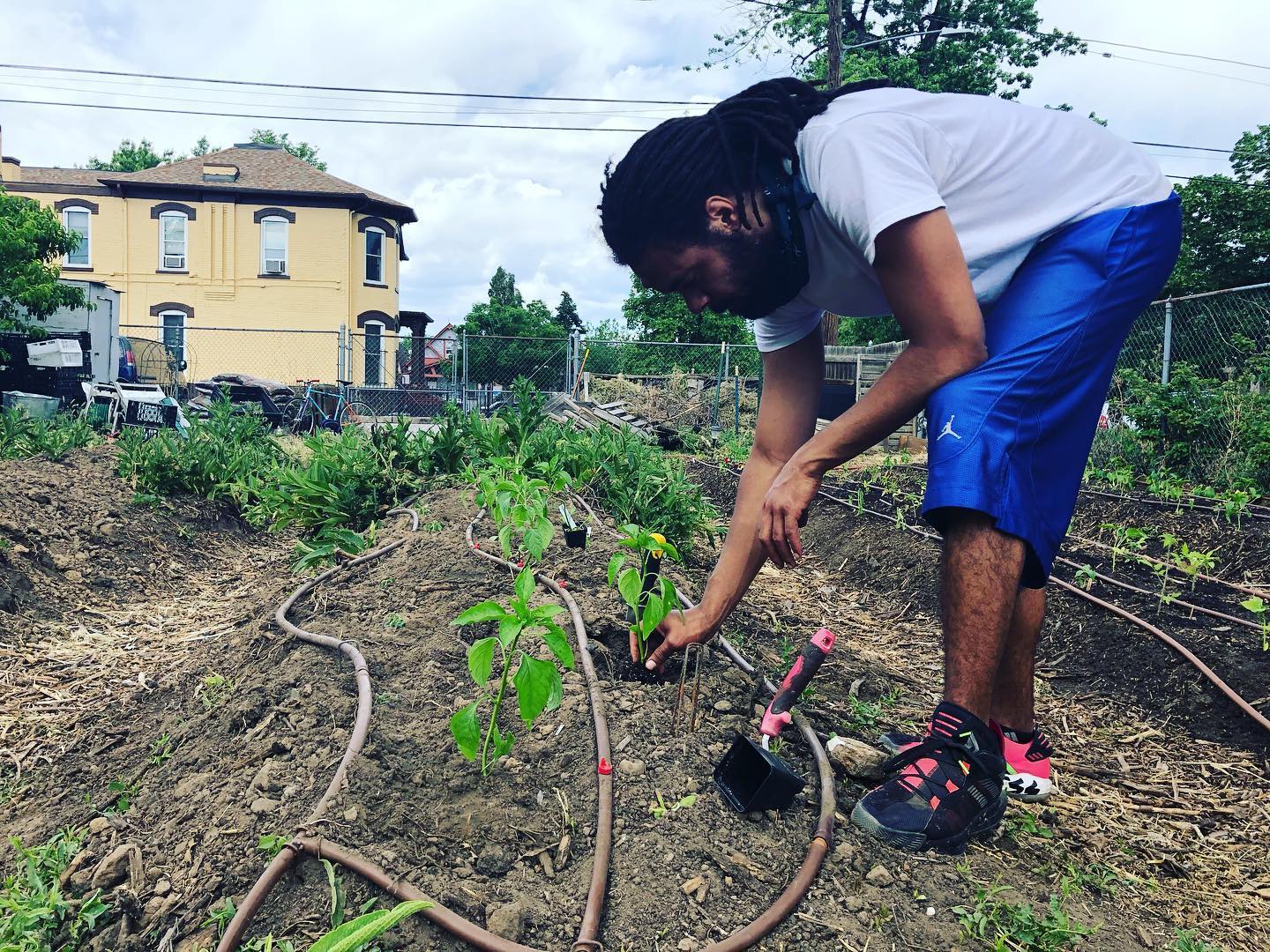
Mo’ Betta Green Marketplace is focused on advocacy, policy and food education through intentional community outreach and partnerships with organizations including the Dahlia Center for Health & Well-being, a Mental Health Center of Denver campus in northeast Park Hill with a one-acre farm. The farming arm of the organization is Seeds of Power Unity Farm, founded in 2014. Produce is grown at the farm and sold this year at pop-up farm stands, which are walk-up and drive-up only.
It was created in 2010 by Beverly Grant, founder of Mo’ Betta Green Marketplace and Seeds of Power Unity Farm. Grant’s tenets for the marketplace are food literacy, environmental stewardship and social responsibility. Until 2020, Grant depended on several year-round volunteers to operate the marketplace. She currently works with program director Sarah Naomi Jones, education director Asia Dorsey, farm manager Flor Marquez and farm mentor Faatma Manmermesh. Braylen Aldridge is the logistics, farmers market and youth employment manager.
Grant said the farm’s tenets are education, preservation (of heirlooms and knowledge of growing practices) and food reliance. She and her staff share and educate through platforms including Health, Eating, Active Living (HEAL) and Traceable origin, Organic, Local and Delicious (TOLD), and lead no-cost community cooking demonstrations and class series with subjects including savvy grocery shopping with useful food facts.
Grant focuses on community weaving, a plan to align similar missions with groups and organizations like the Dahlia Center in addition to educators and chefs. Grant was featured in the New York Times in July 2020 because of her involvement and teacher training in Satya Yoga Collective, a Denver-based BIPOC-led group with yoga classes designed for diverse participants.
She emphasized how racism influences the disparity in health and food inequities in Denver and nationally. The marketplace looks to serve communities in food deserts and food swamps, addressing food insecurity in areas in Denver that are typically low-income and represent communities of color.
“You’re not going to make a difference [addressing health disparities like] obesity if you don’t educate people around eating better, accessing better, cooking better and finding a form of movement [through exercise],” said Grant.
One impact of Mo’ Betta, Grant said, is on BIPOC youth, who are hired to work at and run logistics of outdoor farm stands and serve in volunteer and community service roles. All of Mo’ Betta’s youth staff this summer were BIPOC. She notes the importance of relatability — building trust between BIPOC community members and the value of positive, personal relationships. “It was my requirement that every youth brought produce home at the end of the summer farm stands,” Grant said. “Some were hesitant at first. To me, it’s important that my youth employees are connected to food and improve their situations at home.”
Biweekly farm stands are scheduled on Wednesdays through October 7 from 4 p.m. to 7 p.m. at Seeds of Power Unity Farm, on Fridays through October 2 from 1 p.m to 4 p.m. at the Dahlia Center and on Sundays through September 27 at Alchemy Ritual Goods, according to the marketplace’s Facebook page. Organic, heirloom summer market produce includes beets, beans, bok choy, broccoli, cucumbers, corn, eggplants, greens, herbs, leeks, lettuce, melons, okra, peppers, potatoes, squash, tomatoes and zucchini. Farm stands accepts contactless payment through credit cards, cash and SNAP dollars.
To find more information about Denver’s BIPOC farms and allies, and Colorado agriculture, visit Mile High Farmers and Rocky Mountain Farmers Union. To locate local Black businesses, read 400+ Black Owned Businesses to Support in and Around Denver.





